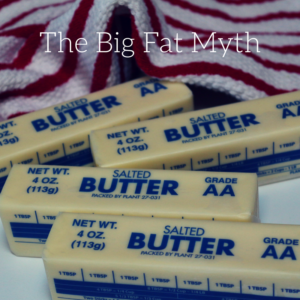
The Big Fat Myth
September 6, 2018 by Counseling and Wellness Center of Pittsburgh blue cross blue shield, high fat diet, highmark nutrition counseling, insulin, integrative medicine, Nutrition Counseling, upmc, Wijkstrom 0 comments

Big Fat Myth, High Fat Diet and how it affects health.
Open a women’s magazine or examine the back of a food label, you will find the ‘evidence’ there. It’s easy to find ready sources that say dietary fat is bad news for your waist line, cholesterol, skin, mood, you name it. Many clinicians still hold that saturated fats like coconut oil, butter and beef cause weight gain, clogged arteries, high cholesterol and heart disease. But, according to Certified Nutritionist Liz Mckinney, there is much to learn when it comes to the Big Fat Myth, read on to re-evaluate fat’s bad reputation. This blog will fill you in on the facts and research in order to assist your physical health, emotional health, and wellness goals by consuming fat and nourishing yourself with this well known macro-nutrient.
Myth: Saturated Fat and Cholesterol Increases Risk of Heart Disease
Today, a common scenario occurs when a patient walks in for a checkup or health screening and they learn that their cholesterol is high. The patient is then told to limit saturated fat and cholesterol intake. Cut down on foods such as red meats, butter, eggs, and oils like palm and coconut) and often a prescription for a statin drug follows when their cholesterol is over 200 mg/dL. This is probably due in part to misleading evidence that suggested that cholesterol levels are directly correlated to risk of heart disease. One such study was performed by a researcher by the name of Ancel Keys in the 1980’s that looked at 22 countries and found that dietary fat intake was related to increased risk of heart disease. However, data on only 7 of those 22 countries was published – those that fit his hypothesis. Since then, many researchers and physicians have refuted this study, and yet, the recommendations that come down the pipe from the American Heart Association and the USDA continue to perpetuate that dietary fat and cholesterol are bad for us.
Research continues to show that high quality animal fats and eggs aren’t the real culprit in heart disease. One of the most notable studies that shows this was called the Women’s Health Initiative, which studied over 48,000 postmenopausal women and the connection between a low fat diet and the risk of heart disease. Participants were followed for an average of 8 years and then assessed for heart disease. The group that reduced overall fat intake and increased intake of whole grains, fruits, and vegetables did not experience reduced risk of Coronary Heart Disease (CDC), stroke or CVD, over the control group. There are other studies that have found similar results, indicating that low fat diets don’t really have much impact on heart disease risk. A report published in 2010 by the American Journal of Clinical Nutrition stated that there was no substantiated link between saturated fat intake and outcomes of obesity, CVD, cancer or osteoporosis. And, if you need even more proof, a meta-analysis of 21 medical reports and studies also published in 2010 in the American Journal of Clinical Nutrition concluded that, “the intake of saturated fat was not associated with an increased risk of coronary heart disease, stroke, or CVD.”
If not fat, then what?
So, if saturated fats aren’t the culprit in CVD and atherosclerosis, then what is? Enter carbohydrates. Most grains and sugars are highly inflammatory. As a society, our diets are high in processed and packaged foods like pastries, fast food, crackers, cookies and cakes. Eating these foods causes surges in blood sugar and taxes the pancreas, whose job it is to produce insulin to shuttle the sugar into our cells to be used for energy or stored for later. Over time, the cells become resistant to insulin and sugar remains in the bloodstream instead of being transported into the cells. Sugar in the blood stream sticks to protein molecules like LDL cholesterol (called “bad cholesterol”). This changes the structure of the LDL and causes an inflammatory cascade which leads to plaques in the arteries and the inability of LDL to carry cholesterol where it’s needed,especially to the brain. So, now we have a simple equation. Too many carbohydrates cause inflammation, which leads to oxidized or damaged LDL and atherosclerosis. This is what leads to heart disease, not eating too much dietary saturated fat and cholesterol.
Read on and look for next weeks post, Liz will share more details about how your health and wellness can be bolstered with fat as she shares all of the well researched benefits to Fat. She will also share a sample meal plan to help you take advantage of the most nourishing food options available.

Certified Licensed Nutritionist, Nutrition and Wellness Counseling
Be Well!
Liz Mckinney, LDN, CNS
Counseling and Wellness Center of Pittsburgh
830 Western Avenue Pittsburgh, PA 15233
2539 Monroeville Blvd Monroeville PA 15146
Providing Individual, Marriage and Family Counseling, as well as wellness solutions to Western Pennsylvania.
Edited By, Stephanie Wijkstrom, MS, LPC, NCC
Related Posts
The Big Fat Myth
September 6, 2018
Big Fat Myth, High Fat Diet and how it affects health. Open a women's...
4 Dietitian Tips for Body Positive Weight Management
September 29, 2022
In more recent years, society has progressed towards a body positive mindset,...


